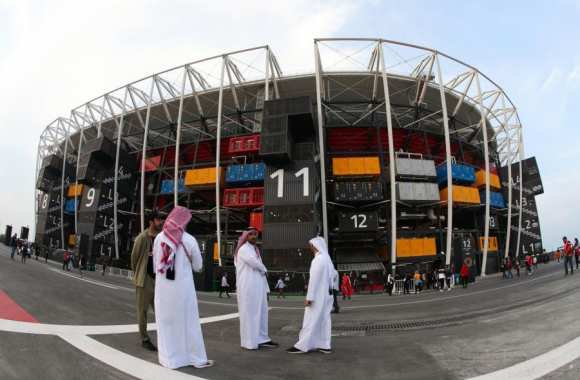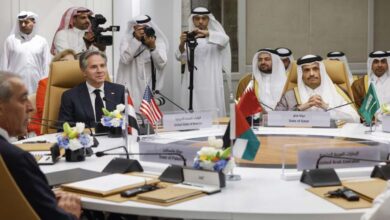The Guardian: Migrant workers in Qatar forced to pay billions in illegal “recruitment fees”

In a shocking finding, an investigation by the British newspaper “The Guardian” found that low-wage migrant workers were forced to pay billions of dollars in recruitment fees to secure their jobs in the host country of the Qatar World Cup over the past decade.
Bangladeshi men migrating to Qatar are likely to have paid around $1.5 billion (£1.14 billion) in fees, possibly as much as $2 billion, between 2011 and 2020; Nepalese men are estimated to have paid about $320 million, and possibly more than $400 million, in the four years between mid-2015 and mid-2019.
The total cost to Qatar’s low-wage migrant workforce is likely to be much higher, as workers from other labor-sending countries in South Asia and Africa also pay high fees.
Migrants from Bangladesh and Nepal, who make up about one-third of Qatar’s $2 million strong foreign workforce, typically pay fees ranging from $3,000 to $4,000 and $1,000 to $1,500 respectively, meaning that many low-wage workers from Bangladesh – who can earn less than $275 a month – have to work at least a year to pay their recruitment fees.
Just a few months before the World Cup, the results reveal the extent of exploitation suffered by some of the world’s poorest workers, including many employed in World Cup-related construction and hospitality projects.
The figures, calculated by The Guardian and supported by labor rights groups, are based on the prevalence and cost of recruitment fees and related expenses reported by several human rights groups and labor experts between 2014 and 2022.
The introduction of recruitment fees is illegal in Qatar – and above the ceiling – in Nepal and Bangladesh, but the practice is deeply pervasive and takes various forms, but it often sees Qatari companies or brokers and recruitment agents in labor-sending countries colluding to force workers to pay for their recruitment, and the fees are paid to agents in their home countries before they leave.
Workers often have to take out high-interest loans or sell land to pay fees; this leaves them vulnerable to debt bondage – a form of modern slavery – because they cannot leave their jobs until the debt is paid.
Despite the costs, hundreds of thousands of Bangladeshi and Nepalese workers continue to seek work in Qatar and abroad every year, largely due to job shortages and low wages at home; many pay the fees knowing the risks, but calculating that they will pay off in the long run.
One worker in Nepal took a construction job in Qatar and waved goodbye to his baby son on his phone. I am so sad to leave my children, I have paid 150,000 rupees [Nepalese] and the agent told me, if you want to go, you have to pay.
The Qatari authorities say: “It has taken steps to address the problem by opening recruitment centers in eight countries, starting in 2018, while experts say they have done little to reduce recruitment fees, as they are paid too early in the recruitment process”.
However, the local organizing committee of the World Cup presented a plan in 2018 to ensure that companies with import contracts pay recruitment fees to their workers, as well as some workers on other projects.
The number of workers who will benefit is only a fraction of the total in Qatar, and in many cases payments only cover part of the recruitment fee, and no additional compensation or calculation of the cost of the workers’ loans.
Nath Bharadwaj, Nepal’s former ambassador to Qatar, called the practice a shocking story: More than 90% of workers pay fees, payment is illegal and often done under the table, so the workers have no proof that they paid. But they can’t get a job if they don’t pay 150,000 or 200,000 NPR. For better jobs, the rate is higher.
While some workers are hired for free or at minimal cost, the vast majority have to pay; they are often the victims of deals between employers and agents in Qatar and a series of recruitment agents and intermediaries in Nepal and Bangladesh.
In some cases, employers or agents in Qatar secure employment visas for workers, then demand commissions ranging from $300 to $500 for each worker in labor-sending countries in exchange for visas.
The Guardian confirmed that the alleged reform scheme also did not extend to the thousands of hospitality workers who play a direct role in the World Cup, noting that last year it interviewed workers at FIFA-approved hotels who said they had paid recruitment fees of up to $2,750.












